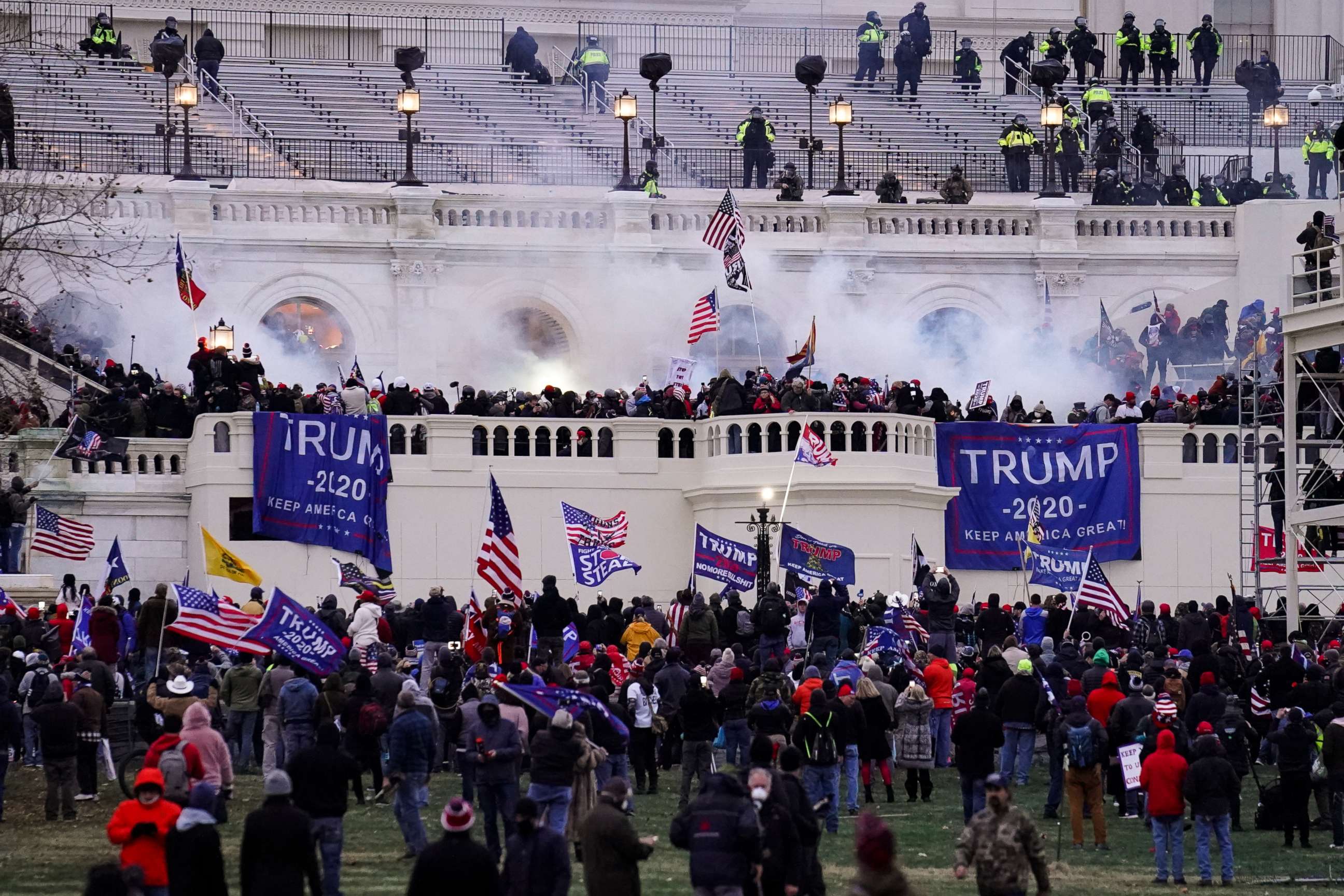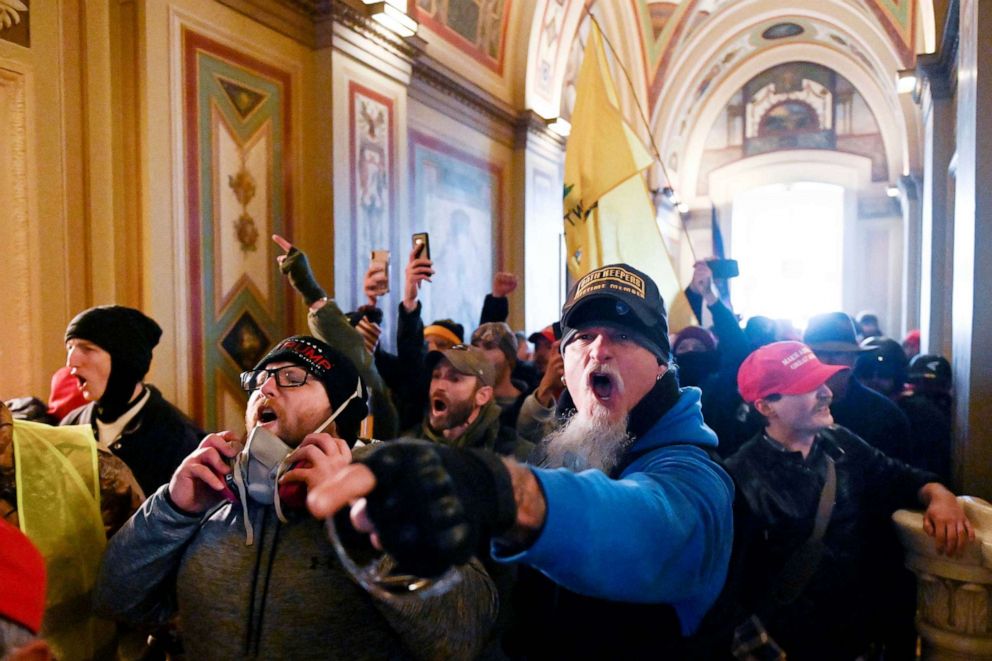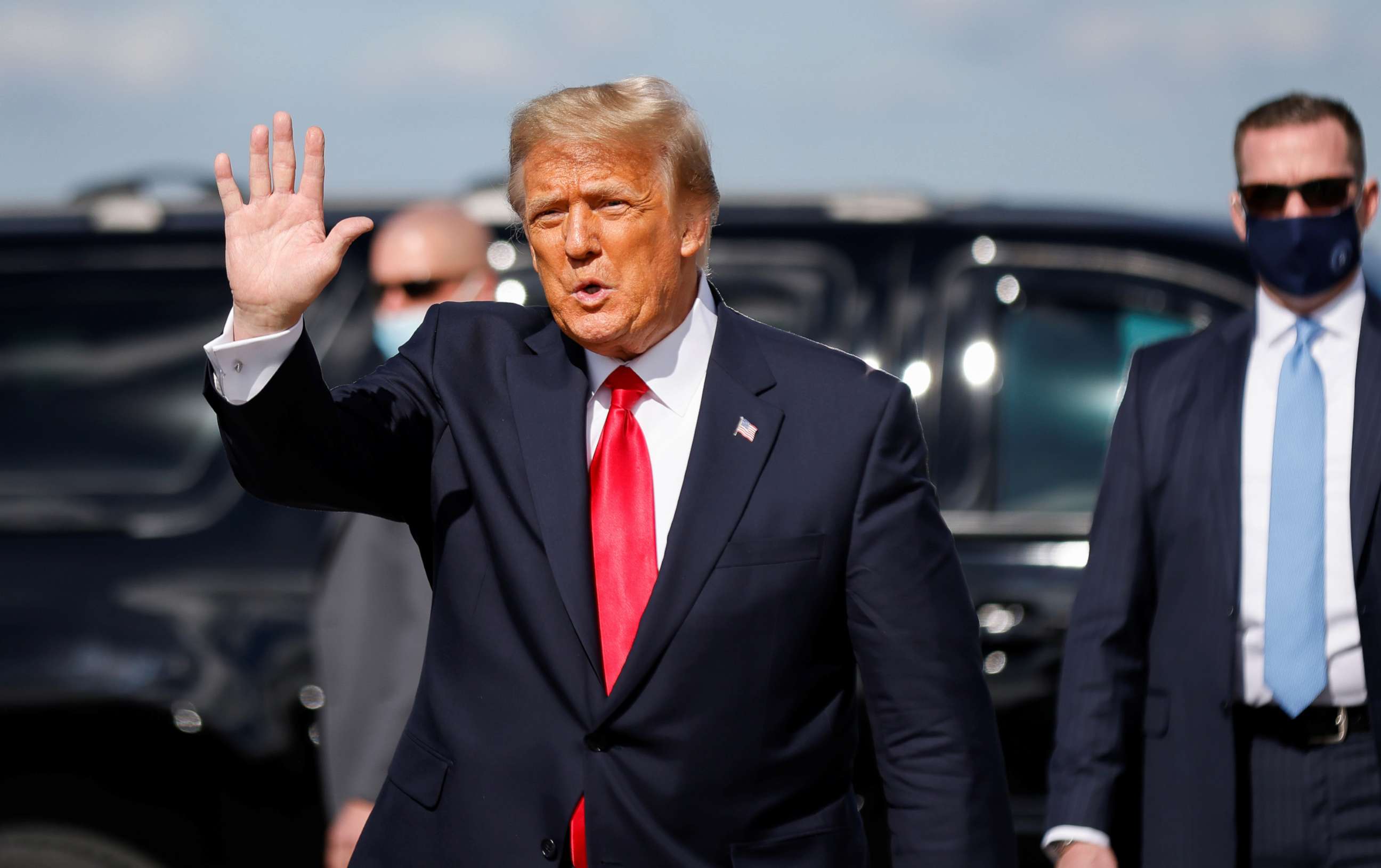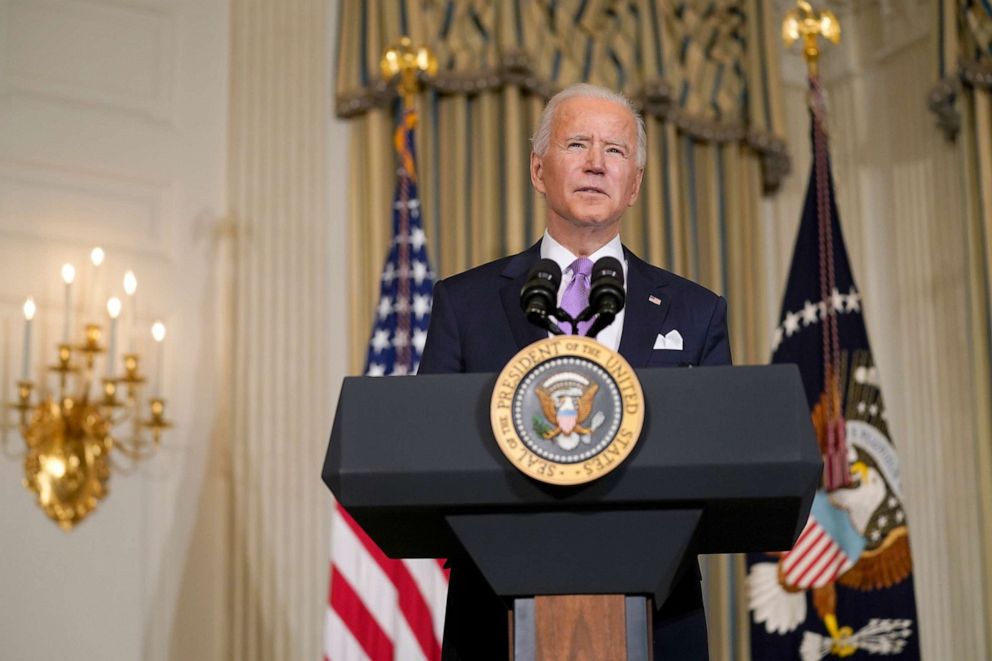Donald Trump and the verdict of history: ANALYSIS
Trump's place in history is bound to be debated for years to come.
Claire Booth Luce, the renowned 20th century politician and playwright, was fond of lecturing many of the presidents she knew -- from Herbert Hoover to Ronald Reagan -- that history would remember them in one sentence.
"History has no time for more than one sentence, and it is always a sentence with an active verb," she said. Then she would illustrate, "Lincoln, he freed the slaves and saved the union," before challenging them: "What will your sentence be?"
Barely out of office a week and still a political force, Donald Trump's place in history, let alone his sentence, is bound to be debated for years to come.

Under any circumstances, it takes a generation or more for historians to sort out a presidency with any degree of objectivity. The distance of years -- as passions recede, presidential records are declassified and evaluated and perspective is offered -- allows more reasoned and detached judgment to take hold.
Harry Truman, now widely considered one of the United States' top 10 presidents, left office with a paltry public approval rating of 32%. Likewise, Lyndon Johnson's legacy was shrouded by the failed war in Vietnam before history shined its light on his mammoth domestic accomplishments, including the fruition of landmark civil rights legislation. And Reagan, a year after leaving the presidency, was grouped in the bottom quintile of all U.S. presidents in a decennial poll among historians before ascending like a rocket in future rankings. That said, it doesn't look good for the 45th president.
Trump would like to be remembered for his handling of the economy, including instituting a massive tax cut for corporations and the country's wealthiest citizens and lifting regulations that had held many corporations back. Or by the number of conservative judges he appointed to the bench, including, by sheer luck of attrition, three justices on the Supreme Court. Or, by his telling, the fact that America is respected in the world again. He'd like to be remembered for advancing prison reform and negotiating renewed relations between Israel and several Arab nations.

But while Trump has been a master at controlling the narrative in his time, history runs its own course.
Especially in cursory evaluations, presidents are measured by the most consequential aspects of their tenure in office, those that align with the major issues and concerns of their times. Presidents facing major crises, for instance, are invariably judged by how they rose to the challenge of resolving them.
Character also comes into play. How did a president's disposition reflect in his leadership in those pivotal times? Franklin Roosevelt, for instance, gets high marks not only for innovatively devising solutions to combat the ills of the Great Depression, but for his ebullient spirit in rallying a ravaged nation. Neither of this bodes well for Donald J. Trump.
Given the patterns of history, it is likely that Trump will be remembered primarily for the central crises of his administration. The first is the COVID-19 pandemic, the worst health calamity to befall the nation in over a century. While Trump can't be blamed for creating the pandemic, he will be held to account for allowing it to spread unchecked with no coherent plan in place as he played it down for fear of it putting a damper on a roaring economy, ignoring science and insisting that the virus would magically go away.
How many of the now over 400,000 Americans who perished from COVID-19 during Trump's watch would have been spared if he had accepted responsibility and implemented policies and procedures toward its mitigation? It was his colossal mishandling of the pandemic more than anything that led to Trump's reelection loss to Joe Biden by over 7 million votes.
But even more so, Trump will be remembered for the other crisis of his administration, one very much of his own doing: baselessly challenging the integrity of a presidential election that led to the seditious siege on the Capitol on Jan. 6. The commander-in-chief stirred up a mob to take down the federal government as lawmakers convened to certify the election in an attempt to overturn the will of the people and, antithetically, "take back our country," resulting in the deaths of five people including a police officer who was bludgeoned to death with a fire extinguisher. The attempted coup is a black mark that even the Teflon Trump can't dodge.

Both tragedies are reflective of the former president's deficient character. Divisive by nature, Trump came into the presidency an angry insurgent, and that's how he governed. Sowing the seeds of doubt, discord, and ultimately destruction, he trampled on democratic norms; exacted revenge and spat vitriol in the bulk of his 34,000 Tweets; and told a whopping 30,573 lies, according to The Washington Post. In many ways, Trump seemed downright anti-American.
Most notably, after mildly rebuking Nazis and racists who clashed violently with other demonstrators in Charlottesville, Virginia, in the summer of 2017, he insisted that there "were very fine people on both sides," and a year later at a summit in Helsinki, appeared to take the word of Russian president Vladimir Putin above his own intelligence agencies over charges of Russian meddling in the 2016 election. But still, who could have imagined what would happen on Jan. 6, 2021?
When he spoke to the nation in his inaugural address after being sworn in to office, Trump, promulgating a policy of "America first," promised "this American carnage stops right here and stops right now." But Trump failed throughout his presidency to put America first, reliably putting himself first instead, unable to live up to the majesty of the office he occupied. And it is this month's carnage at the Capitol, delivered at his own incitement, for which he will be most be associated.
Regardless of whether he gets convicted by the Senate in his impeachment trial next month, Trump, now tainted as the only president to be impeached twice by the House of Representatives, will almost certainly be condemned by history's verdict on that score.

However, despite all of Trump's pernicious machinations, our fragile system of government held over the will of one man. More Americans than in the history of our country cast their ballots last November, over 60 courts dismissed Trump's baseless claims of voter fraud, election officials refused to give in to Trump's pressure to reject the election results, and, just after the failed coup, amid shattered windows and battered doors, lawmakers reconvened in the Capitol to certify the election. When Joe Biden took the helm as the 46th president last week, three words stuck out more than any in his own inauguration address: "Democracy has prevailed."
What might Trump's sentence in history be? Trump, he divided the nation and fought democracy -- and democracy won.
Mark Updegrove is a presidential historian, ABC News contributor and the author of four books, including "The Last Republicans: Inside the Extraordinary Relationship Between George H.W. Bush and George W. Bush" and "Indomitable Will: LBJ in the Presidency."




